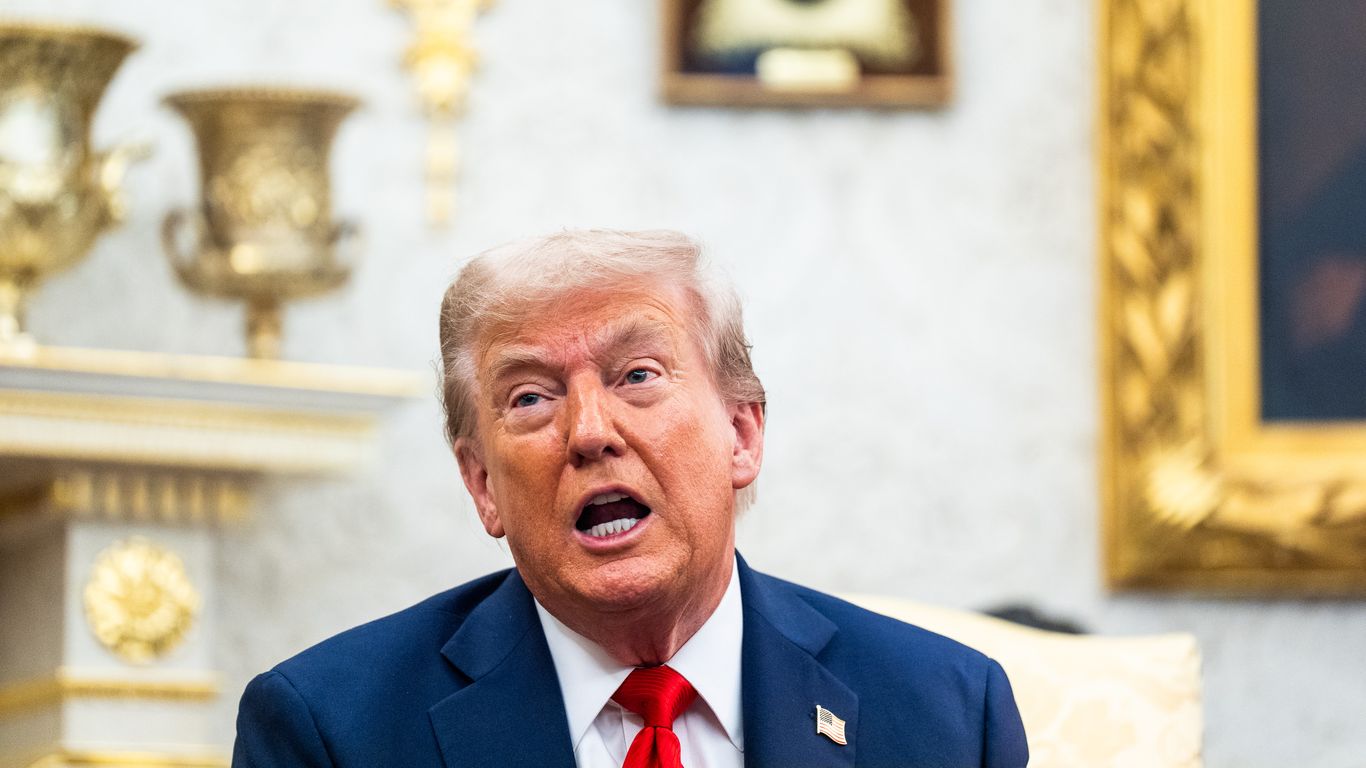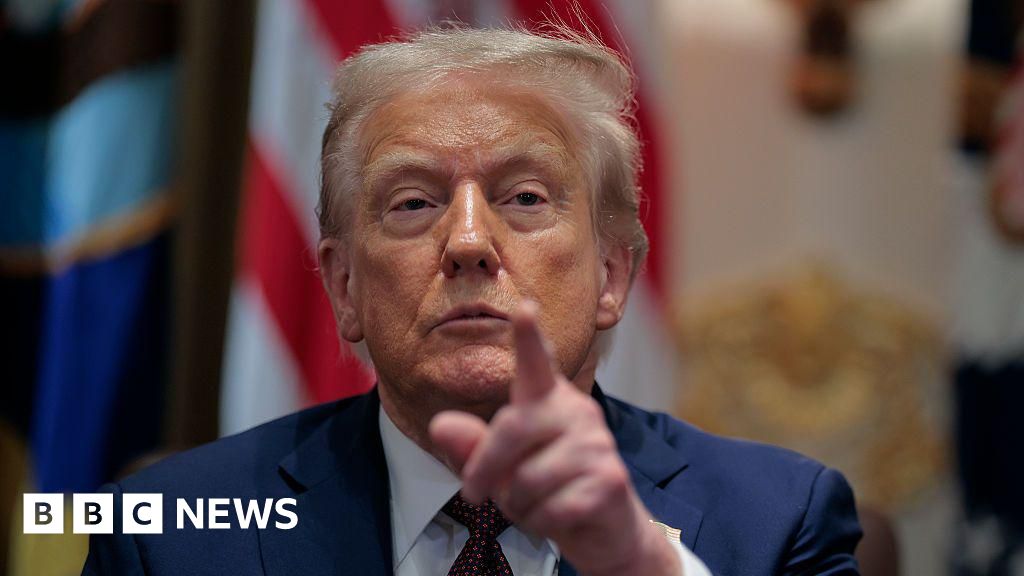The Battle for NYC Mayor: Trump's Role in Democratic Unification

The Battle for NYC Mayor: Trump's Role in Democratic Unification
As the race for New York City mayor heats up, one name has emerged as a surprising contender - democratic socialist, Zohran Mamdani. But while Mamdani has gained significant grassroots support, the party's leaders are yet to fully embrace him as their nominee. This has led to a push for unity within the Democratic party, with many citing the role of former president, Donald Trump, in influencing the race.
The Trump Factor
Trump's recent comments about the race have sparked controversy, with many seeing them as an intentional effort to divide and weaken the Democratic party. He has gone as far as to endorse Republican candidate, Curtis Sliwa, and praise Mamdani's main opponent, Eric Adams. This has only fueled the push for Democrats to unite behind Mamdani, as they see Trump's involvement as an attempt to manipulate the outcome of the race.
The Implications
While the race for NYC mayor continues, the involvement of Trump has highlighted the need for Democrats to come together and support their chosen nominee. This is especially important in a city that has been heavily impacted by Trump's policies and rhetoric. The battle for the city's top leadership position is not just about politics, but also about standing up to those who seek to divide and weaken our democracy. Only
About the People Mentioned
Zohran Mamdani
Zohran Kwame Mamdani is a New York State Assemblymember representing District 36, which includes Astoria and other Queens neighborhoods. He is notably the first South Asian man, the first Ugandan, and only the third Muslim to serve in the New York State Assembly. Mamdani is a democratic socialist focused on advocating for affordable housing, environmental justice, and equitable public services, aiming to improve the quality of life for working-class New Yorkers who face high rent burdens, pollution, and profiling[1][3]. Born in Uganda and raised in New York City, Mamdani graduated from Bowdoin College in 2014 with a degree in Africana studies. During college, he was politically active, cofounding a chapter of Students for Justice in Palestine and organizing a boycott of Israeli institutions. After college, he worked as a foreclosure prevention counselor in Queens and was involved in community organizing, experiences that motivated his entry into politics[3]. In 2020, Mamdani defeated a Democratic incumbent to win his Assembly seat and has since been re-elected twice. Among his key achievements, he co-created a pilot program for fare-free bus service in New York City and led a 15-day hunger strike in 2021 to protest predatory loans impacting taxi drivers, which resulted in $450 million in debt relief for them. He has also secured over $100 million in state funds to improve subway service and launched initiatives to combat environmental and social injustices in his district[2][3]. Currently, Mamdani is running for Mayor of New York City on a platform to lower the cost of living, improve public transit, and support working families, emphasizing government’s role in making life more affordable and dignified for all New Yorkers[2].
Donald Trump
Donald John Trump, born June 14, 1946, in Queens, New York, is an American businessman, media personality, and politician. He graduated from the University of Pennsylvania’s Wharton School in 1968 with a degree in economics. In 1971, he took over his family’s real estate business, renaming it the Trump Organization, through which he expanded into building and managing skyscrapers, hotels, casinos, and golf courses. Trump gained widespread fame as the host of the reality TV show *The Apprentice* from 2004 to 2015, which helped establish his public persona as a successful entrepreneur. Trump entered politics as a Republican and was elected the 45th president of the United States, serving from 2017 to 2021. His presidency was marked by significant policy actions including tax cuts, deregulation, the appointment of three Supreme Court justices, renegotiation of trade agreements (notably replacing NAFTA with the USMCA), and a focus on immigration control including border wall expansion. He withdrew the U.S. from international agreements such as the Paris Climate Accord and the Iran nuclear deal, and engaged in a trade war with China. His administration’s response to the COVID-19 pandemic was criticized for downplaying the virus’s severity. Trump was impeached twice by the House of Representatives—first in 2019 for abuse of power and obstruction, and again in 2021 for incitement of insurrection—but was acquitted by the Senate both times. After losing the 2020 election to Joe Biden, Trump challenged the results, culminating in the January 6, 2021, Capitol riot. He remains a central figure in American politics, having won the 2024 presidential election and returned as the 47th president in 2025, continuing to promote policies aimed at economic growth, border security, and military strength[1][2][3][4].
Curtis Sliwa
Curtis Sliwa is an American activist, broadcaster, and public figure best known as the founder of the Guardian Angels, a volunteer safety patrol group established in New York City in 1979 in response to rising crime and public safety concerns[1][2]. Born on March 26, 1954, in Brooklyn, New York, Sliwa grew up in a Catholic family with Polish and Italian roots and worked as a newspaper delivery boy before managing a McDonald’s in the Bronx, where his early community organizing began[2]. Frustrated by crime in his neighborhood, Sliwa first formed the “Rock Brigade” to clean up the area and later the “Magnificent 13” to patrol subway stations at night, which eventually evolved into the Guardian Angels—recognizable by their red berets and white T-shirts[1][5]. Under his leadership, the group expanded internationally, focusing on crime prevention, youth mentoring, and community service[1]. Sliwa has also been a prominent radio talk show host, notably on WABC-AM in New York, where his commentary on crime and public safety has shaped local discourse for decades[3]. His outspokenness led to a high-profile kidnapping and shooting in 1992, allegedly ordered by John A. Gotti in retaliation for remarks Sliwa made on air; he survived the attack after leaping from a moving cab[4]. Despite three mistrials, prosecutors did not retry Gotti, though jurors believed he was involved[4]. Politically, Sliwa has run as a Republican candidate for Mayor of New York City, most notably in 2021 and again in 2025[1][2]. His campaign platforms emphasize public safety, advocating for increased NYPD funding, more police officers, and changes to city zoning and shelter policies[4]. He has also been involved in recent protests, including a 2023 arrest at an anti-illegal immigration rally outside Gracie Mansion, though charges were later dropped[4]. Sliwa’s personal life includes multiple marriages and a public commitment to animal welfare, notably caring for numerous rescue cats[2][3]. His legacy is marked by both admiration for grassroots activism and controversy over his methods and political stances, maintaining his relevance in New York City’s civic life.
About the Organizations Mentioned
Democratic Party
## Overview of the Democratic Party The Democratic Party is the oldest continuing political party in the United States, with its roots tracing back to 1792 as the Democratic-Republican Party. Founded by Thomas Jefferson and James Madison, it initially advocated for a decentralized government and states' rights, opposing a strong central authority[1][2]. Over time, the party evolved, becoming more progressive and supportive of federal government intervention in social and economic affairs. ## History The modern Democratic Party was formally established in 1828, with Andrew Jackson's presidential campaign marking a significant turning point. Jackson's successful campaign expanded voting rights to all white men, regardless of land ownership, and further reduced federal power[3][6]. The party became deeply divided during the Civil War era, with Northern Democrats supporting limited slavery expansion and Southern Democrats advocating for its perpetuation[3][5]. Post-Civil War, the party became a stronghold for Southern whites who opposed Reconstruction[3]. ## Key Achievements The Democratic Party has played a pivotal role in shaping U.S. history: - **Civil Rights**: The party supported key civil rights legislation, including the Voting Rights Act and the Civil Rights Act of 1964. - **Social Programs**: Democrats have been instrumental in establishing and expanding social programs like Social Security, Medicare, and Medicaid. - **Economic Policies**: The party has often championed progressive economic policies, including labor rights and environmental protection. ## Current Status Today, the Democratic Party is a major force in U.S. politics, advocating for a strong federal government role in addressing social and economic issues. It emphasizes progressive policies on healthcare, climate change, and economic inequality[6]. ## Notable Aspects - **Symbolism**: The party's symbol, the donkey, originated from Andrew Jackson's opponents calling him a "jackass," which his supporters adopted as a mascot[6]. - **Diversity**: The party has become increasingly diverse, representing a wide range of socio-economic and












